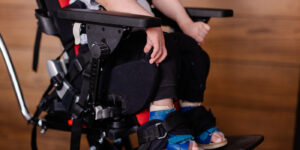Children’s Integrated Therapy and Equipment Service
Therapy One Point
0300 123 2650
kentchft.citesonepoint@nhs.net
Or complete an online enquiry form.
Phone Therapy One Point to:
- progress your child’s programme
- access advice and signposting for therapies
- discuss whether or not a referral to our service is needed.
Who are we?
We are a 100-strong team of qualified occupational therapists, physiotherapists, speech and language therapists, assistants and administrators who provide non-acute therapy to children and young people living in East Sussex.
Our therapists are all registered with the Health and Care Professions Council and we have a team of experienced therapy assistants who support across assessment, therapy and training. All of our clinical staff access clinical supervision and continuous professional development meaning we all maintain up-to-date knowledge in our clinical areas. We have enhanced disclosure and barring checks and we are committed to safeguarding and promoting the welfare of the children and young people in our care.
What we do
Our focus is on enabling. This means helping children to overcome functional difficulties affecting their daily life. Sometimes more than one therapist will be involved in the care of a child, for example to give advice on positioning, seating systems or equipment for a child with complex physical disabilities.
Sometimes only one therapist will be involved, for example to give advice on core strength, sensory needs or speech.
We provide different assessments including diagnostic assessment for developmental co-ordination disorder. We contribute to statutory assessment for Education Health Care Plans. We are part of the East Sussex team for multi-disciplinary autism assessment and diagnosis.
For more information about our service see our children's therapy booklet.
Our care pathways
Read more on our care pathways:
East Sussex Children’s Integrated Therapy and Equipment Service uses an outcomes-based framework that has been developed to ensure that the therapy needs of children and young people are met as part of a whole systems approach.
This framework uses three levels of intervention that is well known in education and aligns with recommendations in Bercow Report (2008) and The Better Communication Research Programme (2012).
The three levels of intervention are universal, targeted and specialist:
Universal: This level is available to all and does not require assessment. It empowers parents and carers, other professionals and education staff to facilitate support for all children. Universal support includes, but is not limited to, training and advice for parents, carers, educational staff and other professionals. You can find out more information in the Universal and general advice section.
Targeted: Targeted support includes but is not limited to specialised training and advice for parents, carers, educational staff and other professionals to enable them to deliver structured interventions and programmes to meet the educational or health needs of the Child and Young Person. It can also include report writing and handover to those implementing therapy programmes e.g. parents, school staff.
Specialist: This level of provision addresses the needs of those children and young people when the complexity in the child or young person’s clinical profile goes beyond what other health or school staff are able to address or progress and to meet needs requires specialist therapist support (e.g. monitoring of spine or hips; 24 hour postural management including safe positioning for complex health needs; complex and persistent speech disorders). Not all children with complex learning needs will require specialist therapy intervention, this would be determined by assessing clinical need and delivering in accordance with evidence-based practice. Intervention will be tailored to an individual’s needs and provision at this level could include: specialist assessment and advice to support and monitor a child’s progress; specialist training to support schools, settings and families; specific interventions in clinic or school settings; review of equipment from a specialist therapist.
Watch our short video to get ideas on how to make your classroom inclusive for children with communication and sensory needs:
Please also visit the appropriate care pathway for further advice and support.
Schools can find the Universally available provision document created by Education East Sussex. This document sets out the provision that should be available to all children and young people so they can thrive in their setting.
The East Sussex SEN Matrix, a document which is designed to provide a shared understanding for schools, the Local Authority, parents/carers, and services such as Health and Social Care, about how to identify the Special Educational Needs of children and young people and provide guidance on provision and resources recommended to meet these needs can be found at ESCC Matrix (eastsussexmatrix.co.uk).
You can find out more about Universally Available Provision, what it is, the expectation on all settings in East Sussex in the Local Offer at The expectations on all settings in East Sussex | East Sussex Local Offer.
Creating inclusive classroom film
Give feedback
Have you used our services and want to give your views?
Kent Community Health NHS Foundation Trust
Local stakeholders
- Contact our Children's Integrated Therapy Service
- Contact our School Health Service
- Support services in East Sussex







